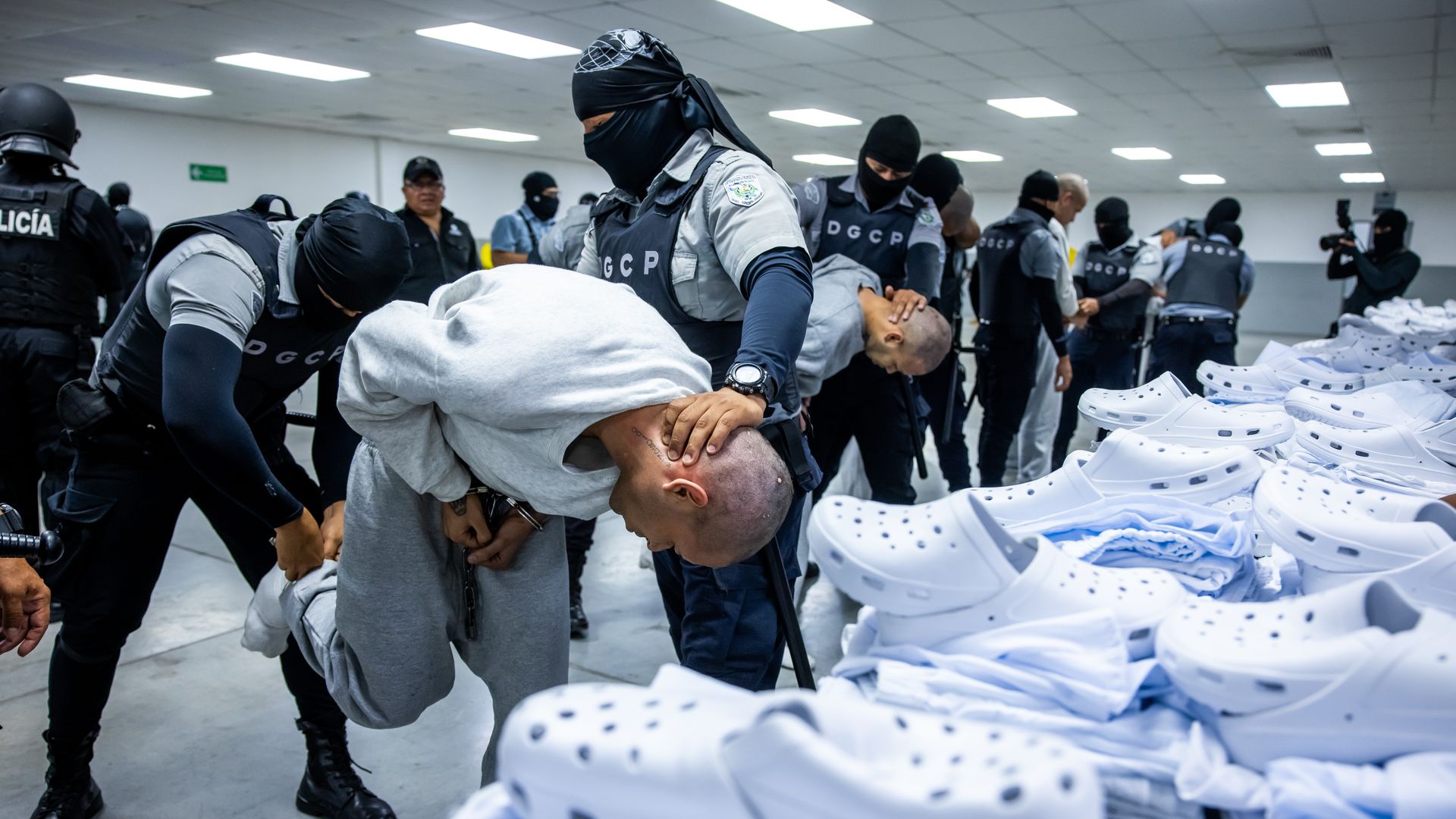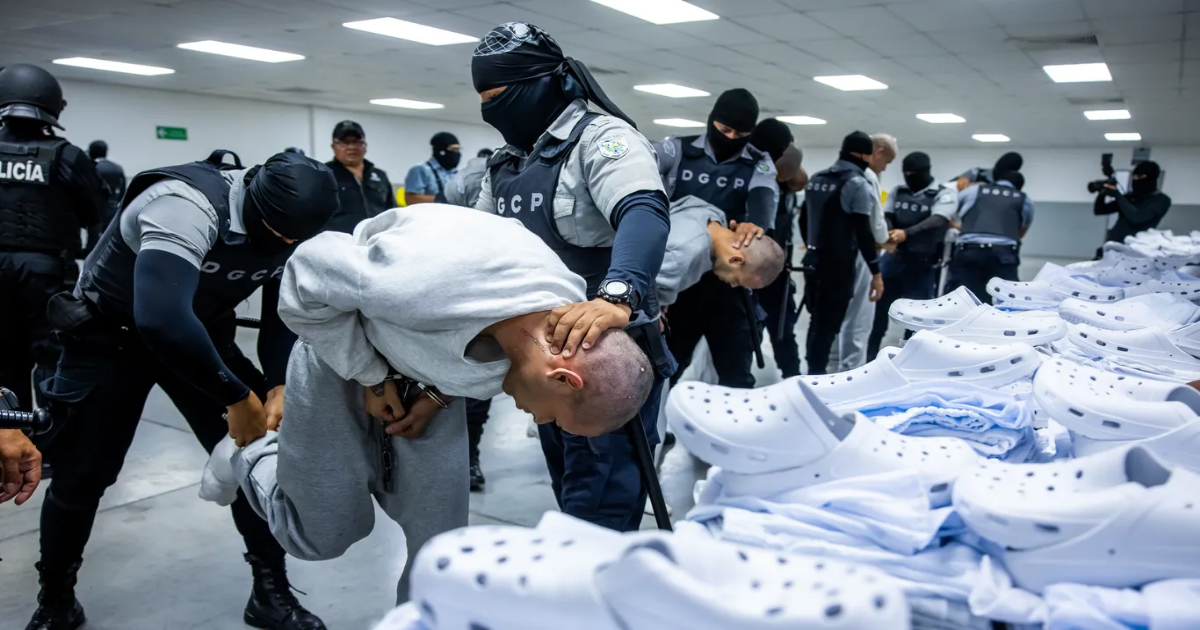
A Salvadorian national living in Maryland legally was wrongly deported to El Salvador, the Department of Justice has admitted in court papers filed Monday.
Why it matters: The erroneous deportation of Kilmar Armando Abrego Garcia, first reported by The Atlantic, is the latest stumble by the Trump administration as it seeks to deport more people using questionable methods amid a declining pace of removals compared to the Biden administration.
The big picture: The Trump administration remained publicly defiant as its immigration crackdown exploded into a global spectacle, ignited by legally fraught deportation drives.
- In addition to challenges to President Trump’s deportations to El Salvador, the targeting of foreign students allegedly involved in pro-Palestinian activism on college campuses is also facing lawsuits and protests.
Catch up quick: Court documents show that Abrego Garcia was stopped on March 12 by immigration agents who wrongly told him that his status had changed.
- Abrego Garcia had “withholding from removal” status, which means he was allowed to stay in the U.S. because of the likelihood that he’d face harm in El Salvador.
- The DOJ says he was questioned about gang affiliation and transferred to a Texas detention center.
- “On March 15, although ICE was aware of his protection from removal to El Salvador, Abrego Garcia was removed to El Salvador because of an administrative error,” Justice Department attorneys wrote in a Monday filing.
Zoom in: Abrego Garcia’s wife, a U.S. citizen, identified her husband based on his tattoos and head scars following a news article with a picture of detainees entering El Salvador’s notorious Center for Terrorism Confinement (CECOT) prison.
- She’s suing the Trump administration and asking a federal judge to order the federal government to request that El Salvador return Abrego Garcia.
Yes, but: DOJ lawyers say in court documents that there is little they can do to get him back from El Salvador.
- They are asking the judge overseeing the case to reject his family’s petition, arguing that the Trump administration can’t make the Salvadoran government release him.
The lastest: Vice President JD Vance on Monday posted on X, in a reply to podcaster Jon Favreau about the case, that Abrego Garcia was a gang member.
- “My comment is that according to the court document you apparently didn’t read he was a convicted MS-13 gang member with no legal right to be here,” Vance posted.
- “My further comment is that it’s gross to get fired up about gang members getting deported while ignoring citizens they victimize.”
Reality check: Abrego Garcia has not been convicted of gang-related crimes.
- He was accused in court, and it’s unclear if any of his tattoos are gang-related.
- Other family members of detainees in El Salvador contend that these tattoos show the men are not gang members, but actually “family men” or sports fans.
- Some tattoos seen in photos are popular images of Chicano and Latino culture, not dangerous gangs.
Between the lines: The Trump administration’s decision to deport the alleged gang members in defiance of a court order has set up a high-stakes legal battle that could test the limits of President Trump‘s power.
- Earlier this month, U.S. District Judge James Boasberg rejected the Trump administration’s request to lift the temporary halt on the deportations.
- Inmates in these prisons have provided declarations of having no access to regular food and drinking water, rarely being allowed to leave their cells.
- They also have said they do not see daylight for days at a time and sleep upright due to overcrowding, Boasberg said.
